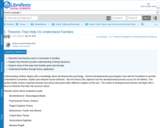
Textbook used in CSI EDUC 204 Families, Communities, and Culture
- Subject:
- Education
- Social Science
- Material Type:
- Textbook
- Author:
- Joshua Halpern
- Rebecca Laff
- Wendy Ruiz
- Date Added:
- 12/01/2022

Textbook used in CSI EDUC 204 Families, Communities, and Culture
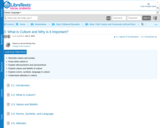
Textbook chapter used in CSI EDUC 204 Families, Communities, and Culture.
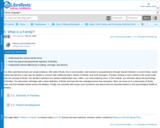
Textbook chapter used in CSI EDUC 204 Families, Communities, and Culture.
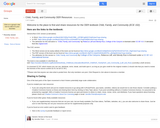
Over the years researchers have found the necessity to develop theories of behavior that are specific to family settings. These theories have been developed by people with a variety of areas of emphasis, from family therapists to gerontologists to child development specialists. In this chapter we will briefly discuss six such theories: Bioecological Model, Family Systems, Functionalism, Conflict Theory, Symbolic Interactionism, and Psychological Perspectives.
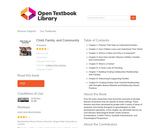
Early Childhood Education / ECE-102 Child, Family and Community
Examines the developing child in a societal context focusing on the interrelationship of family, school, and community and emphasizing historical and socio cultural factors. The processes of socialization and identity development will be highlighted, showing the importance of respectful, reciprocal relationships that support and empower families.
Generic/Non-COC version (a derivative):
In Word: https://drive.google.com/file/d/1B4Y2EEp7HoECRBh_vXP3BCrg84QYOnjD/view?usp=sharing
In PDF: https://drive.google.com/file/d/11EETGrZW8__4DYWI_78e89Ru9S4OvM13/view?usp=sharing
The attribution for this derivative is: "Child, Family, and Community" by Rebecca Laff and Wendy Ruiz, College of the Canyons is licensed under CC BY 4.0 / A derivative from the original work
The COC version:
The Word version (to be easily edited) of the book can be found at https://drive.google.com/file/d/13xMpfZloGnrZyPQVOHvSIYwVYsH_24gX/view?usp=sharing
The PDF version of the book can be found at https://drive.google.com/file/d/1jOkejB_wKLZYpDaaUJpfRceQ01LA9Fth/view?usp=sharing
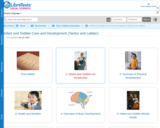
This book is a compilation of created and remixed resources for use in various courses supporting the care and development of infants and toddlers. This textbook is intended to be pulled apart, remixed, reshared, and redistributed in the form that best meets your individual needs. For this reason, this resource has unique characteristics not typical of other textbooks.
• Each chapter or section is stand-alone. No chapter references another or makes statements such as “as you previously read.” This intentional design choice allows you to remix every section without concern about referencing a section you did not copy over.
• The chapters were created around topics we felt should be stand-alone and therefore had different length requirements. For this reason, you will notice a chapter might be 20 pages or 2.
• Chapters contain multiple sections to remix easily and create new and unique chapters for your individual needs.
• You might find repeat information within sections. Since each section is intended as a stand-alone section, information might be repeated within sections to give context to the subject matter. The beauty of OER is you have permission to delete and add as needed.
• We’ve made every effort to keep the original source with the content, as you remix be aware of the license types on each resource.
To best use a small window of time to complete this resource, we decided to forgo many of the extra “bells and whistles” one might find in traditional textbooks, including call-out boxes with additional resources, robust vignettes, and reflection questions. While we feel this resource contains much of the content needed for multiple infant and toddler courses, we eagerly await each improvement upon this resource the infant and toddler educator community bring forth.
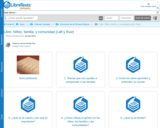
Un capítulo utilizado en el curso EDUC 204 Families, Communities and Culture.

A lo largo de los años, los investigadores encontraron la necesidad de desarrollar teorías de comportamiento que sean específicas de los entornos familiares. Estas teorías fueron desarrolladas por diversos expertos en un sinnúmero de ramas, desde terapeutas familiares hasta gerontólogos y especialistas en desarrollo infantil. En este capítulo hablaremos brevemente sobre seis de estas teorías: el modelo ecológico, los sistemas familiares, el funcionalismo, la teoría del conflicto, el interaccionismo simbólico y las perspectivas psicológicas.